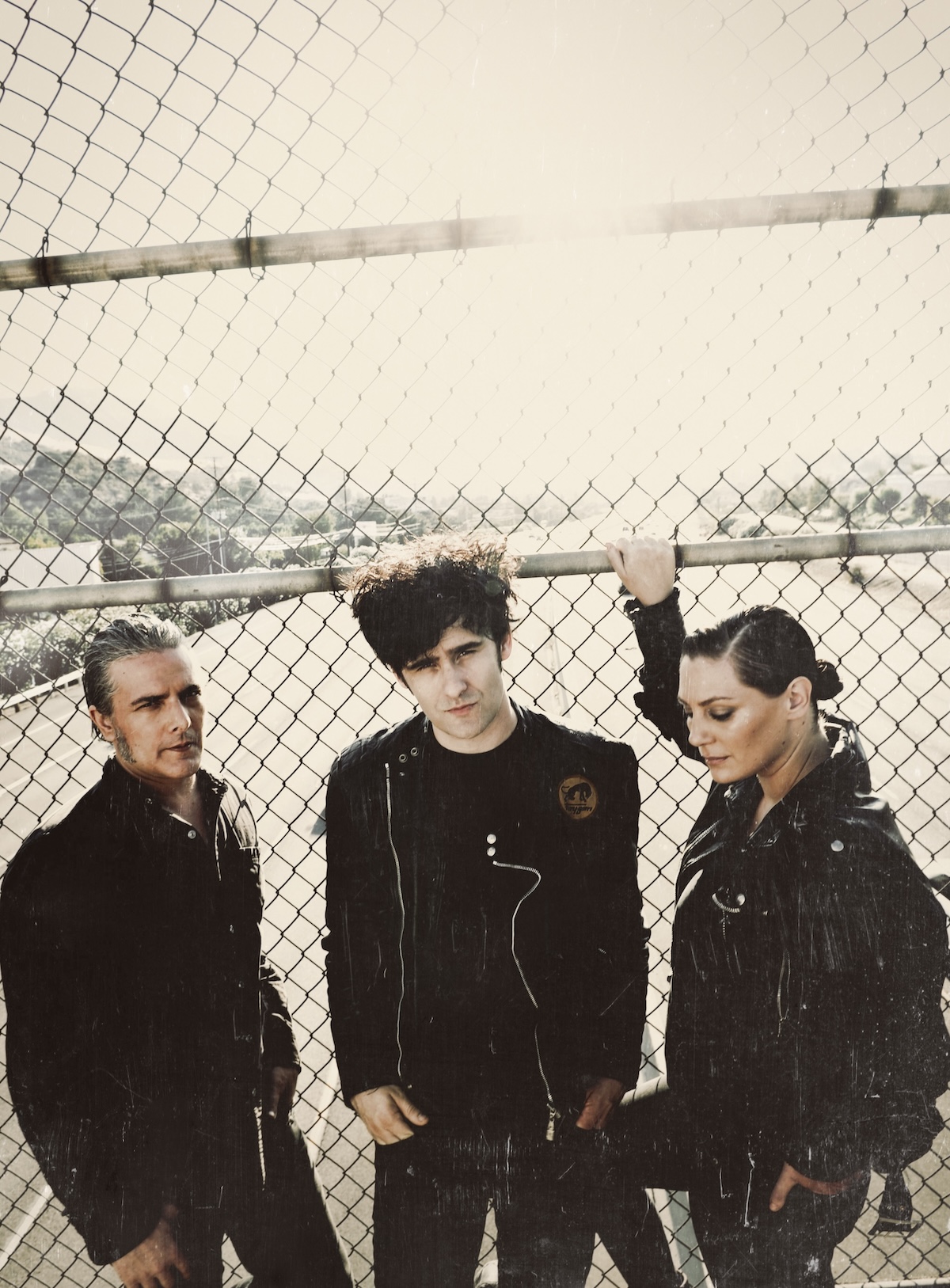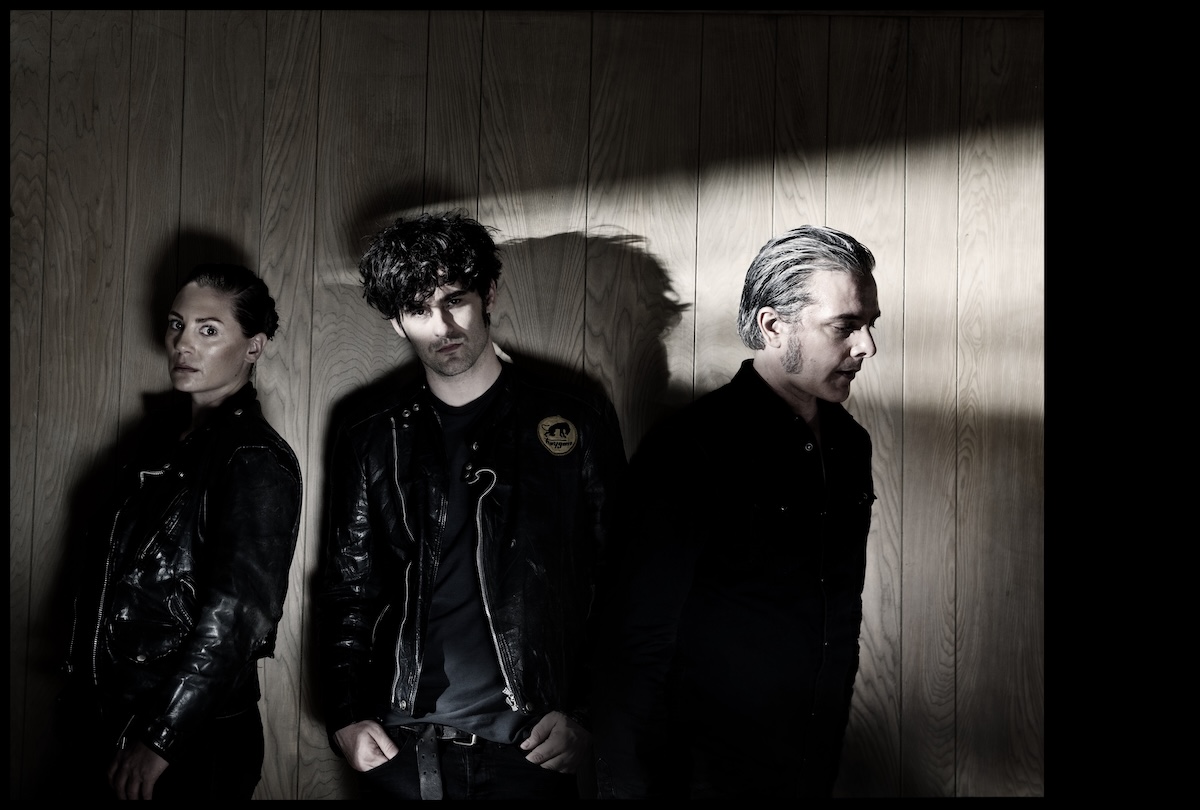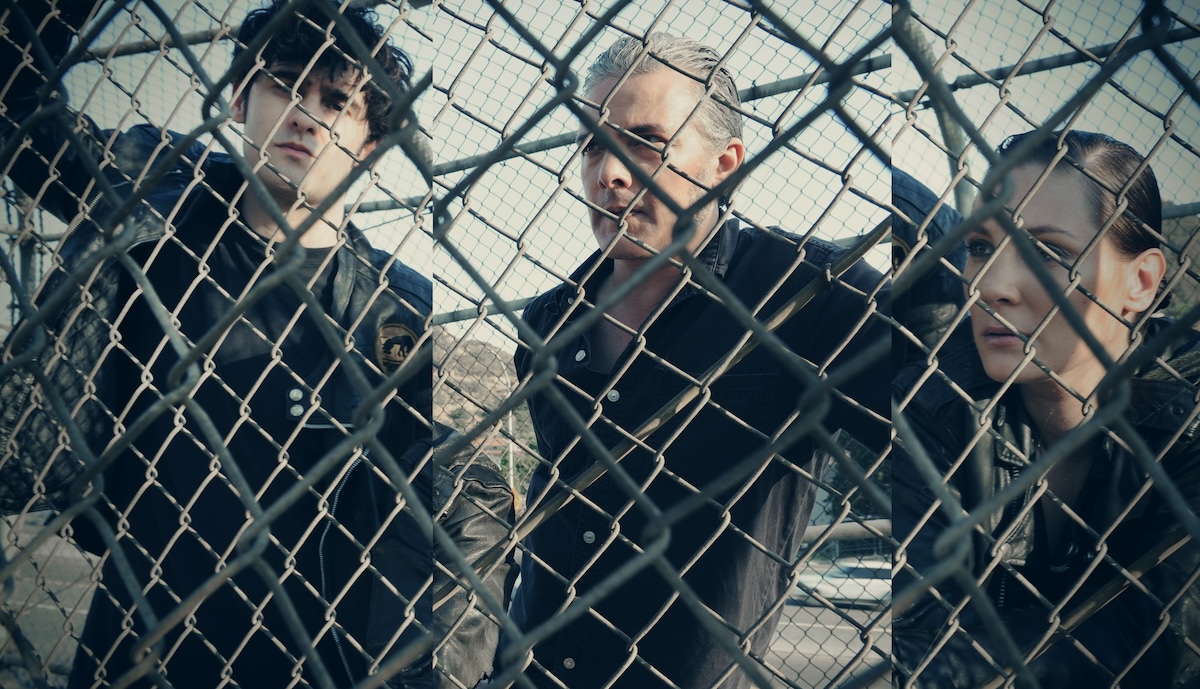When Black Rebel Motorcycle Club released their third album, Howl, in 2005, the reaction was polarizing. The trio had made their name with a fuzz-drenched wall of rock ‘n roll that quickly won over critics and audiences. But after two albums in that vein, they took a sharp turn. As Zac Crain put it in his SPIN review, “…something has happened to transform BRMC from a dead-eyed trio of noise peddlers to church-going country-blues converts.”
Now celebrating its 20th anniversary, Howl bears little trace of the controversy that greeted its release. In their early years, BRMC mostly drew rock loyalists, but Howl reached listeners who might never have touched the first two albums. Rooted in acoustic gospel, blues, and folk, the album has more than proven its staying power, and it seems to me that the group’s bassist-vocalist Robert Levon Been feels a measure of vindication in its lasting impact. This fall sees the release of a special deluxe four-LP vinyl edition of Howl, which includes previously unreleased tracks from the 2005 recording sessions.
BRMC kicks off an extensive tour marking Howl’s 20th anniversary on September 20. A couple of weeks beforehand, Been spoke with SPIN about the album and the band’s plan to perform all of its songs live. “That was the idea—if we actually pull it off,” he says. “We’ve been playing around with the sequence, but the hope is we’ll get through all of the songs, or at least know how to play them all, and have the option. The second half of the show we’ll play loud, abrasive stuff. By the end, when you see it in L.A., we should have learned it.”

More recently BRMC’s Johnny Cash cover, recorded for the Netflix limited series A Man in Full, was used by the Department of Homeland Security in one of their reels to which the group responded via their Instagram account in true Black Rebel style. Been says, “The letter back from Homeland Security was the most surreal thing I’ve read. It sounded like an ex-girlfriend writing to you. It didn’t sound like it was coming from an official organization, or a legal chain. It was kind of shocking. We see the political theater of it, but to get a peek behind the curtain was pretty revelatory. It’s a complete shitshow.”
As far as new music, Been tells me to pump the brakes. “We’re keeping steady with repairing the relationship, seeing how far we get with being able to come together and and just have that joy and camaraderie of playing live together. We’re trying not to get too greedy with pushing it more than that. We have been through quite a lot of intense ups and downs. We’re taking it one step at a time. I hope we get to that place of music coming together naturally. For now, grateful for today, and grateful for tomorrow.”
What spurred the stylistic and musical approach on Howl?
Digging music that was from a different place was always there, we just didn’t know how to do it with any confidence until later. Making the record was like finding this skill set. We started off as a rock band because it’s just fucking easier. It’s the same way I learned bass, because it had less strings, so it was going to take less time. The first album, we could kind of fake it through a bunch of songs really well and be a loud rock band, let the swagger fill all the holes we haven’t learned how to do yet. And then how scary because it’s hard enough trying to play the songs live, but legitimately, you get to the last verse or a bridge, and you can’t just fill it with something that you scribble down really quick because it degrades everything else. You have to really craft songs like that. It takes a lot more time and work. We didn’t know how to write all that skillfully yet.
We were really proud though, when we finally actually pulled off the thing that we were just as passionate about as the other stuff. That’s one area of my life I feel good looking back on that’s actually turned out pretty well. Statistically, it should not have. We lost the label, lost the drummer, everyone turned it down, except RCA at the very last second. And they even gave us a stipulation: “We’ll only put this out as a boutique thing through Echo, a subsidiary label, if you promise you’ll record a real rock record next.” It was the best deal we got. At least they let us put it out as is, which was the big sticking point.


In some of the press around Howl, you and Peter mention that without Nick Jago, your former drummer, the music you played sounded like Howl. Do you think his absence had something to do with how the album ended up sounding?
No, because Nick tried to go with the flow as long as he could. But it’s the kiss of death to be a drummer and then hear we’re making an acoustic record. It’s like, “Okay, well, what the fuck am I supposed to do?” We didn’t know what the songs were going to end up being. It was a labor shaping each song. Some remained strictly acoustic, and some became entirely other things, but we didn’t know any of that. I probably would have left as well, feeling like a third wheel or something.
But he came back for the tour, and at the end of the day, it was a good thing for Pete and I to learn how to be these separate islands. We got back together stronger, like the cliché relationship stuff. Nick was our little Liam Gallagher, like a pit bull with attitude. That infused it with a lot of raw bullshit that we had to figure out and maneuver. When it worked, it was the best and you don’t want to dismiss that—even though they fucking drive you crazy, and you want to tell them they’re the best and the worst things.
I thought it was the biggest gesture for him to come back and want to support touring it. That takes a big guy to be like, “Fuck it. I wasn’t on this album, but I’m going to play it, play my heart out.” I’d be a much smaller person. I would not come back to that band. My ego couldn’t handle it. I would make up some story and be like, “Fuck them.” He showed up a few more times than he gets credit for.
The album was developing as you were recording?
We were learning as we go. We thought it was going to be like a Bruce Springsteen Nebraska kind of record where we put some reverb on it, and that would be it. And then started experimenting with different organs and trombone and choir vocals and a lot of things. There wasn’t any sort of plan, but each thing felt right as it went along, and we also didn’t think how we’d ever pull it off live. We thought we’ll play a couple of acoustic shows, and then people want to hear the electric stuff again. The scariest thing was rehearsing, how to figure out how to play those, and we kind of cheated and only played some of them. Right now, literally, I’m about to leave to go to this rehearsal, and only 20 years later actually figure out how to play the record live. Can’t run from it forever.


Changing musical direction at that point was such a risky thing to do. Did it feel that way to you?
It absolutely felt like that. It was fucking terrifying. Everything was on the line with one shot at the buzzer. It’s like the Rocky movie. All the other records, I feel like we tried to kill each other, and then we didn’t, and then we got back, and it’s all right. That one felt like there were a lot of different things trying to stop it at every corner. We triumphed through it all, but it shouldn’t have worked out that way.
Do you think Howl grew your audience to people who like twangy cowboy shit?
So much of why I felt the record is good is because I hate that twangy cowboy shit so much. It’s like making a film in a genre, like a horror film or something, but you hate most of the horror things. You just like this one specific type of thing that horror does. It’s why recording that record felt like making a ship in a bottle. It was agony, because there was almost no freedom to move. Everything had to be handled very carefully, because if you phone in at any point or say, “I’m just going to let the rest of this go on,” and do what you would expect it to do, it got really awful. I had a similar dislike for so many things, that was the best secret weapon, navigationally, because the hate keeps you alive sometimes. If I didn’t hate it quite as much, I’d be like, “Okay, I guess it’s fine that way.” And it’s not. So yeah, more so than the passion of doing it was the incentive to not end up on the wrong side of that line. It’s weird the way that works, the hate.


As a band you had a bad reputation as far as being uncooperative. Why is that?
The push for writing songs from day one was because I don’t know how to talk and I don’t know how to get this feeling across [because of] the stuttering, stammering shit, and also the mood swings. Music was the first time I didn’t need to talk and I didn’t need to get in the way of that. I was so happy, and I wish the world worked that way, that that’s all you had to do. You could hide behind your guitar and make your songs and never have to give an interview. But we got thrown into both worlds, and initially we were a little grumpy about that, because the dream was you wouldn’t have to do all that. And then we realized that comes with the deal. But, it depends on the day and the person.
Sometimes you can disintegrate inside yourself with thoughts and things and it’s a waste of time to even try to get some of that across. Both Pete and I struggle with that. We got a stigma because people thought we were too cool or arrogant or moody, and not grateful for all these things. We were just nervous. We weren’t media trained, so we fell into that stereotype pretty quick.


What’s your perspective on Howl 20 years later?
The big question for this era in art is how to balance quantity versus quality in all forms, in people’s writing, their music, their online content, the jokes they write. Do you go the Jay Leno route and fire off machine gun rounds of useless shit that is going to come and go? Or do you take your time and craft a few things that really matter to you and put it in a special? The relationship between those two paths and the in between of, “I’ll do one for me, and one for them,” I feel so many people are struggling with because of the speed and the rate of what’s required to retain attention constantly.
Howl’s an easy one. We chose the one path to have this thing that maybe at its loftiest, 20 years later someone would be asking about it and asking to hear it again. That’s the dream. The dream is not to be breaking your back for 20 years putting out fodder to keep people’s attention that barely matters to them, let alone you. But as much as that record—a lot of them—came close to killing us, what better death is there? I at least know that if you get that chance, fucking take it completely. But a lot of the people and influences and advice you’ll get is to create a balance or just keep on turning over, putting stuff out quicker. It doesn’t matter, it’s blah-blah-blah, more and more and more. The excess of it’ll all come out in the wash in the end.
I’m really grateful to have gotten to the other side of that versus being a new band now that doesn’t even know in their gut if something is true or not. They just want to have attention, or people checking out their shit right now and be trending or keeping up numbers. You’re thinking short term apocalyptic shit rather than anything a little more steady in yourself that takes time to craft. It’s a luxury to get to do that. That, more than anything, keeps me a little more sane at night.




